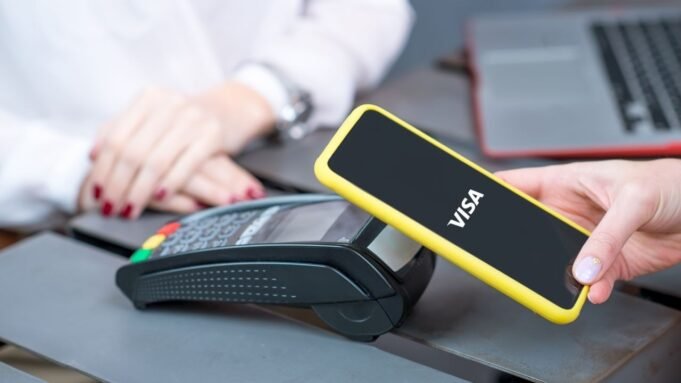The advent of digital payments has revolutionized the way we transact, offering unparalleled convenience and speed. In this evolving landscape, the Visa Provisioning Service stands as a pivotal element that facilitates the secure and hassle-free addition of payment methods to a multitude of devices. This service not only empowers consumers to shop with a tap or a click but also reassures them that their transactions are secure.
This content aims to demystify the Visa Provisioning Service by exploring its origins, operational mechanics, and the security infrastructure that underpins it. Understanding this service is essential for consumers, merchants, and financial institutions as they navigate the expanding domain of digital payments.
What is the Visa Provisioning Service?
The Visa Provisioning Service is a system designed to enhance transaction processes for both shoppers and sellers. It achieves this by securely maintaining payment details like credit card numbers in an electronic wallet, which is available on various devices.
The main attributes of this service are its use of tokenization to substitute confidential information with distinct codes, and its ability to instantly refresh to maintain up-to-date and secure transactions. The adoption of the Visa Provisioning Service can lead to advantages like greater ease for consumers, diminished likelihood of fraud for retailers, and heightened efficiency in payments.
Read More: How to Apply for a Portugal D7 Visa
How Does Visa Provisioning Service Work?
Visa Provisioning Service utilizes a process known as tokenization, where a unique digital identifier, or “token,” is used to replace a customer’s personal account number. This token is then used for transactions, significantly reducing the risk of card details being compromised.
The process begins when a cardholder enters their Visa card details into a mobile wallet or app. Visa’s network validates the information and works with the card issuer to tokenize the card details. The token is then transmitted back to the device, enabling the cardholder to make payments securely.
Security is a cornerstone of the Visa Provisioning Service. Multiple layers of security, including tokenization, encryption, and risk-based authentication, ensure that even if a device is lost or stolen, the payment token cannot be misused. In addition, biometric authentication methods like fingerprint or facial recognition add an extra layer of security during the transaction process.
Key Features of Visa Provisioning Service
Compatibility with Various Devices and Platforms
Visa Provisioning Service stands out for its compatibility with a broad range of devices and platforms. Whether it’s a smartphone, tablet, smartwatch, or any NFC-enabled device, the service is designed to support secure digital payments across these varied touchpoints. This flexibility extends to its integration with different mobile wallets and banking applications, ensuring that regardless of the consumer’s choice of technology, Visa’s service remains accessible and functional.
Real-Time Provisioning Capabilities
A critical feature of Visa Provisioning Service is its ability to provision cards in real-time. As soon as a consumer adds their Visa card to a digital wallet, the service instantaneously generates a token, enabling immediate use. This immediacy is essential not just for consumer satisfaction but also for ensuring that the digital payment ecosystem operates with the efficiency that users expect in an always-on world.
Support for Multiple Form Factors
Visa Provisioning Service is not limited to traditional cards or mobile phones; it also extends to a variety of form factors including wearables like smartwatches and fitness bands. This adaptability ensures that no matter how the technology landscape evolves, Visa’s service will be at the forefront, ready to securely provision payment capabilities to new and emerging devices.
Read Also: Limousines Service in Las Vegas
How to Use Visa Provisioning Service?
To begin utilizing the Visa Provisioning Service, your initial action is to register for your credit or debit card. This requires downloading a digital wallet that supports the Visa Provisioning Service and adhering to the provided instructions to incorporate your card. After your card is registered, you’re ready to use the Visa Provisioning Service for making payments via your mobile device.
Card Registration Process for Visa Provisioning Service:
Leverage the ease and security of Visa Provisioning Service by executing these straightforward steps:
- Enroll Your Visa Card: Initiate by registering your Visa card with a digital payment provider, inputting details like your card number, expiry date, CVC/security code, and any additional necessary data.
- Wait for Verification: Post-registration, wait for the confirmation process. Your digital payment provider will verify your card details with Visa, enhancing the security measures.
- Commence Making Payments: With your card confirmed, you can now engage in mobile transactions through the Visa Provisioning Service with complete simplicity.
Take note that charges related to the Visa Provisioning Service will display as $0 on your banking statements, offering a seamless transactional experience. Should you register your card with any online vendors or digital wallets, keep an eye out for such charges, which indicate that your payment data is securely undergoing the tokenization process.
Benefits of Using Visa Provisioning Service
Convenience for Consumers
The convenience afforded by Visa Provisioning Service is unparalleled. Consumers no longer need to carry physical cards or wait for new cards to be issued. With just a few taps on their device, they can add their card details and start transacting, making the service a huge leap forward in terms of ease of use and convenience.
Increased Security and Fraud Prevention
By replacing sensitive card information with tokens, Visa Provisioning Service significantly mitigates the risk of fraud. Even if a transaction were to be intercepted, the tokenized information would be useless outside of the secure transaction environment. This robust security feature provides peace of mind for consumers and reduces fraud-related losses for issuers and merchants.
Benefits for Merchants and Issuers
Merchants benefit from Visa Provisioning Service through reduced checkout times, leading to a smoother customer experience and potentially higher sales volumes. Issuers, on the other hand, enjoy increased card usage, reduced card-present fraud, and a modernized payment solution that meets consumer expectations for quick and secure transactions.
Enhancing Customer Experience with Seamless Transactions
The service enables seamless transactions, which is a significant advantage. Consumers enjoy a frictionless checkout experience—no more fumbling for cards or worrying about card malfunctions. Every transaction is smooth, fast, and secure, enhancing the overall customer experience.
Also Read: Can a Felon Get a Passport
What is a Visa Service Provisioning Charge on My Credit Card?
A charge from the Visa Provisioning Service on your credit card statement, which is a zero-dollar fee, is simply a verification measure used by Visa to confirm your card details. This standard procedure helps to keep your account active and protected against any fraudulent activities.
Retailers implement this tokenization technique to authenticate the payment method before completing a purchase. The charge is always reflected as $0 on your statement, indicating that it is safe and a routine operation. Therefore, if you notice this charge after linking your card with online vendors or digital wallets, it’s just an additional security step for your assurance.
Security Aspects of Visa Provisioning Service
Tokenization and Its Importance
Tokenization is the cornerstone of the Visa Provisioning Service’s security architecture. This process replaces sensitive account information, such as the 16-digit primary account number (PAN), with a unique digital identifier known as a “token.” These tokens are used to facilitate transactions without exposing actual card details, thereby significantly reducing the risk of financial data being compromised or fraudulently used.
Encryption and Data Protection Measures
In addition to tokenization, Visa employs robust encryption standards to protect data in transit and at rest. Visa Provisioning Service uses advanced cryptographic techniques to ensure that any data transmitted through its network is inaccessible to unauthorized parties. These layers of encryption serve as an additional safeguard, protecting personal and financial information at every stage of the transaction process.
Compliance with Industry Standards (e.g., PCI DSS, EMVCo)
Visa Provisioning Service is compliant with the Payment Card Industry Data Security Standard (PCI DSS), ensuring that all entities that store, process, or transmit credit card information maintain a secure environment. Furthermore, Visa aligns with EMVCo’s tokenization specifications to provide interoperability and enhance security across different payment environments. These compliance measures are regularly updated to respond to emerging security challenges.
Know More: A Passport to Global Wellness
Difference Between a Visa Provisioning Service and a Visa Token Service
The Visa Provisioning Service and the Visa Token Service both play integral roles in safeguarding cardholder data and mitigating the risk of fraud, yet they function in distinct capacities.
Visa Provisioning Service
This service is utilized by merchants and providers of digital wallets to authenticate cardholder details and set up tokens. Through tokenization, it replaces sensitive card data with a unique identifier or “token” that is useless for fraudulent transactions.
Visa Token Service
Conversely, the Visa Token Service is responsible for creating and distributing tokens to merchants and digital wallet operators. These tokens act as secure digital stand-ins for actual payment card details during transactions.
Key Differences
The primary distinction lies in the functionalities: the Visa Provisioning Service focuses on verification, whereas the Visa Token Service concentrates on the creation of tokens.
Additionally, the Visa Provisioning Service is mainly accessed by merchants and digital wallet providers for the purpose of provisioning, and the Visa Token Service is predominantly engaged by card issuers to generate tokens that replace card details in secure transactions.
The Future of Visa Provisioning Service
In the future, Visa Provisioning Service may see enhancements like the integration of artificial intelligence for fraud detection, the use of machine learning for personalized customer experiences, and the expansion of new untapped devices. Additionally, advancements in tokenization technology could further safeguard against evolving security threats.
Visa Provisioning Service is poised to play a significant role in the payment industry’s future by providing the infrastructure necessary for the secure and convenient transactions that consumers and businesses demand. As the fabric that connects new technologies with traditional banking systems, it will be essential in enabling the future payment ecosystem to flourish.
Also Read: Automated Payment Processing
Conclusion
In summary, grasping the workings of the Visa Provisioning Service is crucial for safeguarding your personal account details during both online and physical store transactions. The service employs tokenization to provide advantages that include improved protection from credit card theft and efficient management of expenditures.
Nonetheless, it’s critical to stay vigilant about possible issues, including the legitimacy of transactions and understanding how to deactivate the service if necessary.
Frequently Asked Questions (FAQs)
Why do I have a charge from Visa Provisioning Service?
When you register your Visa card with a digital wallet or another payment platform, you might notice a Visa Provisioning Service transaction on your statement. This transaction is part of a verification process to confirm the legitimacy of your card and to ensure that you have given permission to the merchant to keep your card details on file.
Is Provisioning Service Safe?
Yes, the Visa provisioning service is a common procedure employed by major online retailers to validate credit card details and the identity of the card owner. Essentially, they serve as a routine safeguard to prevent the unauthorized use of credit cards by fraudsters.
What is Visa Provisioning Service $0?
Many individuals notice the $0 charge and become enthused, mistakenly thinking they might receive something at no cost simply by agreeing to provision their card. However, this is a misconception. The $0 charge associated with the Visa Provisioning Service is a singular occurrence on your credit or debit card statement, and it serves to confirm the validity of your mobile number and address linked to your Visa card.
What is a Visa Provisioning Service fee?
A Visa Provisioning Service fee is a provisional pre-authorization used to confirm your card details and to grant permission to a merchant for holding your card information. It is generally a zero-dollar charge and is expected to be cleared from your account after a short period.
How can I add my card to a wallet using Visa Provisioning Service?
Typically, you can add your card by entering your card details into the wallet app, which will then use Visa Provisioning Service to tokenize your information.























![25 Best Peruvian Foods You Must Try In Peru [With Recipes] Peruvian Food](https://tourinplanet.com/wp-content/uploads/2024/07/Peruvian-Food-100x75.jpg)



![What is The Marvelous VFR C500? – [Key Features and Overview] Marvelous VFR c500](https://tourinplanet.com/wp-content/uploads/2024/07/Marvelous-VFR-c500-100x75.jpg)
